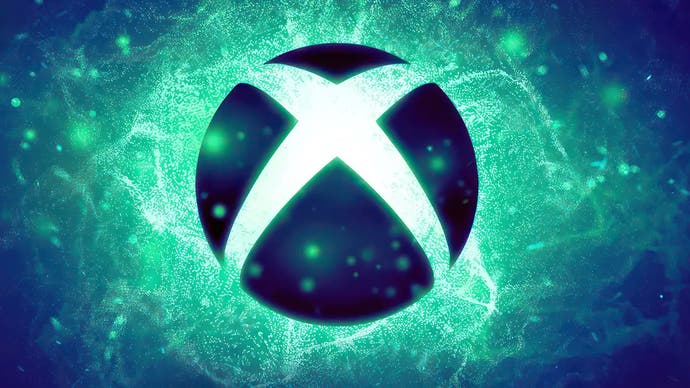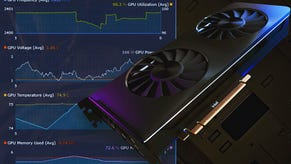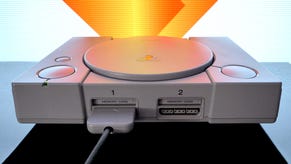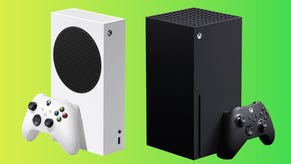DF Weekly: Is Microsoft right to rule out an Xbox Series 'pro' console?
And what if Sony goes ahead and makes one anyway?
Has Microsoft ruled out an upgraded version of the Xbox Series X console as a mid-generation upgrade for the existing line-up of consoles? According to an interview with Bloomberg, Xbox chief Phil Spencer doesn't 'feel an imperative' to deliver a more powerful machine, saying 'right now, we're set on the hardware we have'.
This is the primary discussion point for this week's DF Direct Weekly - and based on how the console generation has developed in its first 2.5 years, it's difficult to argue against the Xbox team's thinking. Microsoft itself has only just finished developing for the last generation Xbox One console and across the industry, developers and publishers are finally letting go of the older hardware. Meanwhile, technologies designed specifically for the current consoles are at last arriving: across the summer, we should start to see the first game to utilise Epic's Unreal Engine 5 technology. If we've yet to see what the current wave of consoles can actually do, is there actually an imperative to deliver a more powerful machine?
In the Bloomberg interview, Spencer also talks about 'feedback' suggesting that such a machine probably isn't a good idea - but what can that feedback actually be? Creating a console takes several years, so either a new machine was developed and canned in the meantime based on this feedback or else Spencer's taking a look at the last-gen base vs enhanced console split, which was around 80/20 in favour of the cheaper, less capable machine. Was that 20 percent of users just too low to be worth the effort of going through the console development cycle again? Is it even possible to deliver a meaningful upgrade within the next couple of years?
- 00:00:00 Introduction
- 00:01:05 News 01: No Xbox enhanced machine planned?
- 00:21:17 News 02: Microsoft no longer developing for Xbox One
- 00:32:08 News 03: TLOU PC patch 1.1 analysed!
- 00:44:47 News 04: Sony announces PS5 cloud streaming
- 00:55:41 Supporter Q1: Should Starfield have an uncapped VRR mode on consoles?
- 01:05:19 Supporter Q2: I didn't like the 30fps option in FF16, but Tears of the Kingdom seems fine - why could this be?
- 01:07:26 Supporter Q3: Alex was once excited about the possibilities of DX12 several years ago. Does he miss that version of himself?
- 01:12:05 Supporter Q4: Could systems with unified memory setups be a solution to VRAM woes on PCs?
- 01:15:32 Supporter Q5: Are FSR 2's image quality concerns an issue for console software going forward?
- 01:22:20 Supporter Q6: If you could alter one thing about game development, what would it be?
I often refer readers to our Series S big interview from back in the day, where Microsoft laid out in precise terms why it launched two consoles simultaneously. Put simply, the firm saw no realistic way to make Series X substantially cheaper across the console generation, so it introduced a lower spec model at launch instead of a cost-reduced 'flagship' machine further down the road. That prophecy has come to pass: the only new hardware we're seeing from Microsoft is a 1TB Xbox Series S - $50 more expensive than the $299 512GB model released 2.5 years ago. By extension, the same price constraints make a cost-effective 'Pro' console that much more challenging.
Meanwhile, in the background, rumours from Insider Gaming continue to circulate that Sony is planning to deliver a Pro model at some point next year. If this sounds unlikely, it's worth mentioning that the same outlet already had the scoop on the Project Q handheld and if its mooted PS5 revision with an optional, detachable optical drive happens, that would be further validation of the source. If so, conceivably we could be looking at Sony delivering a more powerful machine and Microsoft not competing. Strategically, that may not look great for Xbox, but on the flipside, Microsoft is also deeply invested in PC, which delivers as much or as little performance as you can afford.
Beyond that, assuming a 'PS5 Pro' is happening at some point, the question is what kind of new console could actually be delivered bearing in mind Microsoft's explanations of how difficult it is to create new, more powerful hardware in a world where 'cost per transistor' isn't reducing quickly enough any more. The truth is, that's a difficult one to answer.
AMD isn't quite as forthcoming on its roadmaps as it used to be, but three years on from PlayStation 5 and Xbox Series X, there has been tremendous improvement in CPU performance. Today's Zen 4 architecture is a big leap from the Zen 2 in the current consoles. Beyond that, AMD must surely be aware by now that its lack of machine learning acceleration is harming its consumer products, so I would expect some kind of DLSS competitor to make its way into a future console. Can Sony copy its approach to PS4 Pro with a PS5 equivalent and double the size of the GPU? This seems unlikely unless there is some kind of massive area-efficient win coming from AMD, but it may simply be the case that Sony will expect you to pay more to get more. PS4 Pro was delivered at the same price-point as the launch PS4 but perhaps a successor could be aimed at those considering a higher spec PC, with more money to spend.
Another potential answer to the question is to consider the end of the console generation as we know it with Sony and eventually Microsoft transitioning to a more iterative bump in capabilities every few years, as we've seen in the smartphone space. Or alternatively, this console generation may go on for so long that the enhanced machines could still be coming - just further on down the line compared to their predecessors.
For now though, it really does look as though Microsoft isn't looking to add to its line-up of ninth generation consoles and unless there's a compelling alternative argument from Sony, this looks like the best move. We've not been short of great games to play since the arrival of PS5 and Xbox Series machines but if there's one takeaway from last week's summer game events, it's that developers are stepping up their game. When you look at titles like Star Wars Outlaws, Avatar: Frontiers of Pandora, Fable and Marvel's Spider-Man 2, it looks like the new generation is finally kicking into gear.










